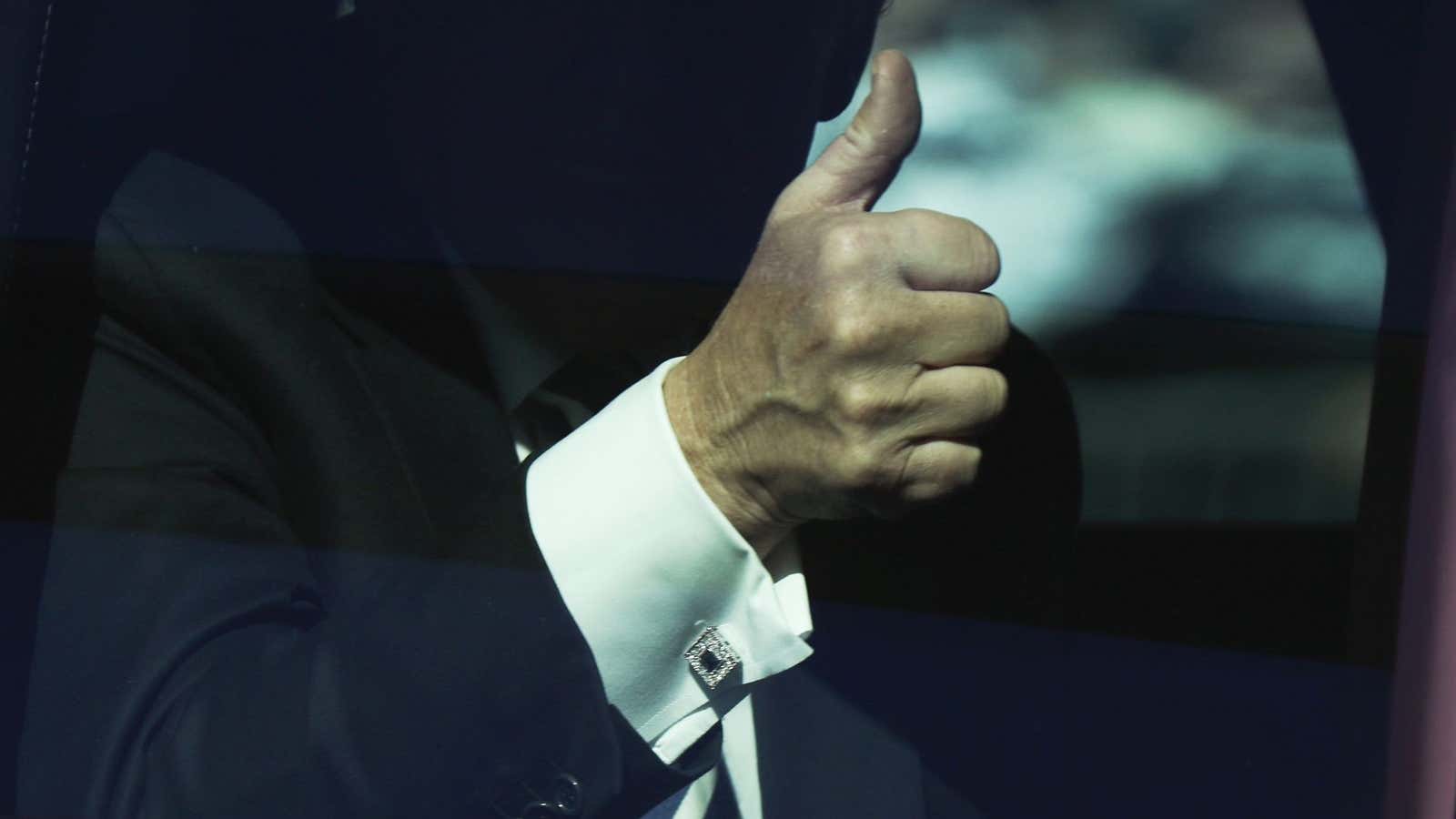There are few things that emulate the instantaneous feedback of a Facebook thumbs up, a Twitter like, or a Reddit upvote. They’re the digital equivalent of a gold star on your homework, a pat on the back, or a room full of applauding fans, but they arrive much more quickly and consistently than in-person affirmation.
Those little hits of affirmation bring us fleeting joy, and incentivize us to use social media day after day. But those incentives drive the darker sides of social media, too. Just as “likes” on our dog photos makes us feel supported and appreciated, “likes” in online extremist communities can normalize radical beliefs and cement a community of extremists.
Twitter seems to understand the outsize influence of likes on their platform. Amid rumors that it might remove the heart-shaped “like” button from their site, it cited the desire to “incentivize healthy conversations.” Likes build rapport among strangers, which can blossom into online communities—a dangerous tool when wielded by extremists. Of course, one platform removing the ability to “like” something is no panacea for bad behavior online. But it could be a key step towards dismantling the echo chambers that foment extremism, something Twitter has struggled with (pdf) since its founding.
Twitter’s statement underlines how in online communities, followers and “likes” can be a proxy for legitimacy. For instance, in a recent study, Washington State University communications researchers found that Facebook posts that attracted more likes were seen as more credible (paywall). There’s a hot market for fake online engagement precisely because we know, intuitively, that people who appear more popular online command power. We call people with lots of Instagram engagement “influencers” for precisely this reason—we know they have the clout to sell people things—and on other social media networks, that influence applies to the power to sway opinion.
Likes not only establish social pecking order, but they also make members feel more important. Receiving a like is an affirmation that what you’ve written resonates with someone, and for many people who end up in extremist circles, that affirmation is important, as research on radicalization finds that many extremists feel marginalized (paywall), and have a strong desire to belong. Those likes also represent social support, lending credibility to fringe beliefs that might become normal in some online groups.
Receiving positive signals can also lead a person to reciprocate by giving positive signals to other users, strengthening community bonds. For instance, in a study of Facebook users, when people received a “like” from a friend, they were more likely to reciprocate (paywall) by hitting “like” on a post that friend had made.
In another study by communications researchers at the University of Hawaii at Manoa and Syracuse University, likes built community (pdf) very quickly. Participants watched a televised community debate about new land development while using a Twitter-like platform to post their thoughts and look at others’ posts. Unbeknownst to participants, all other posts were pre-programmed, as were any “likes” they received on their own posts; some participants received likes, while others received none. Those that got likes reported feeling more a part of a community.
“The discovery that a fleeting phatic expression—nothing more than an unknown person clicking a star icon on your post—strengthened a sense of belonging on the feed seems to suggest that proximate strangers can develop a sense of connection in a short period of time,” wrote the authors. In short, these ‘likes’ have the power to draw social media users into a new community.
Those communities, in turn, can shape your beliefs. It’s well-documented in social psychology research that being part of a group increases the likelihood individuals will conform to the will of the group. In one famous study, conformity even led men to disregard what they saw with their own eyes (pdf). In the community debate livetweeting study, participants who received “likes” on their posts were not only more likely to feel a part of a community, but also more likely to conform to the beliefs espoused by the majority of those made-up tweets.
Twitter’s banishment of likes surely won’t remove extremist groups from the internet. But it will remove one of the mechanisms that push the psychological reward levers that support radical communities—and that’s a start.
